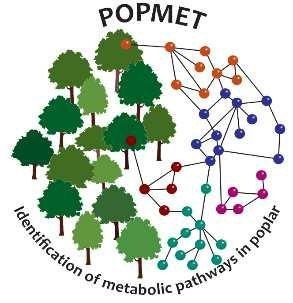Wout Boerjan - POPMET
Description of the PI

Description of the project

Poplar is an important woody biomass crop and at the same time the model of choice for molecular research in trees. Although there is steady progress in resolving the functions of unknown genes, the identities of most secondary metabolites in poplar remain unknown. The lack of metabolite identities in experimental systems is a true gap in information content, and impedes obtaining deep insight into the complex biology of living systems. The main reason is that metabolites are difficult to purify because of their low abundance, hindering their structural characterization and the discovery of their biosynthetic pathways. In this project, we will use CSPP, an innovative method recently developed in my lab, to systematically predict the structures of metabolites along with their biosynthetic pathways in poplar wood, bark and leaves. This CSPP method is based on a combination of metabolomics and informatics. In a next step, the CSPP tool will be combined with two complementary genetic approaches based on re-sequence data from 750 poplar trees to identify the genes encoding the enzymes in the predicted pathways. Genome Wide Association Studies (GWAS) will be made to identify SNPs in the genes involved in the metabolic conversions. Subsequently, rare defective alleles will be identified for these genes in the sequenced population. Genes identified by both approaches will then be further studied either by crossing natural poplars that are heterozygous for the defective alleles, or by CRISPR/Cas9-based gene editing in poplar. The functional studies will be further underpinned by enzyme assays. Given that almost no information is currently available on the structure of most secondary metabolites, neither on their metabolic pathways, this large-scale identification effort will stimulate a quantum leap in our basic understanding of secondary metabolism in the tree model system poplar, and will lay the foundation to further develop poplar as an industrial wood-producing crop.